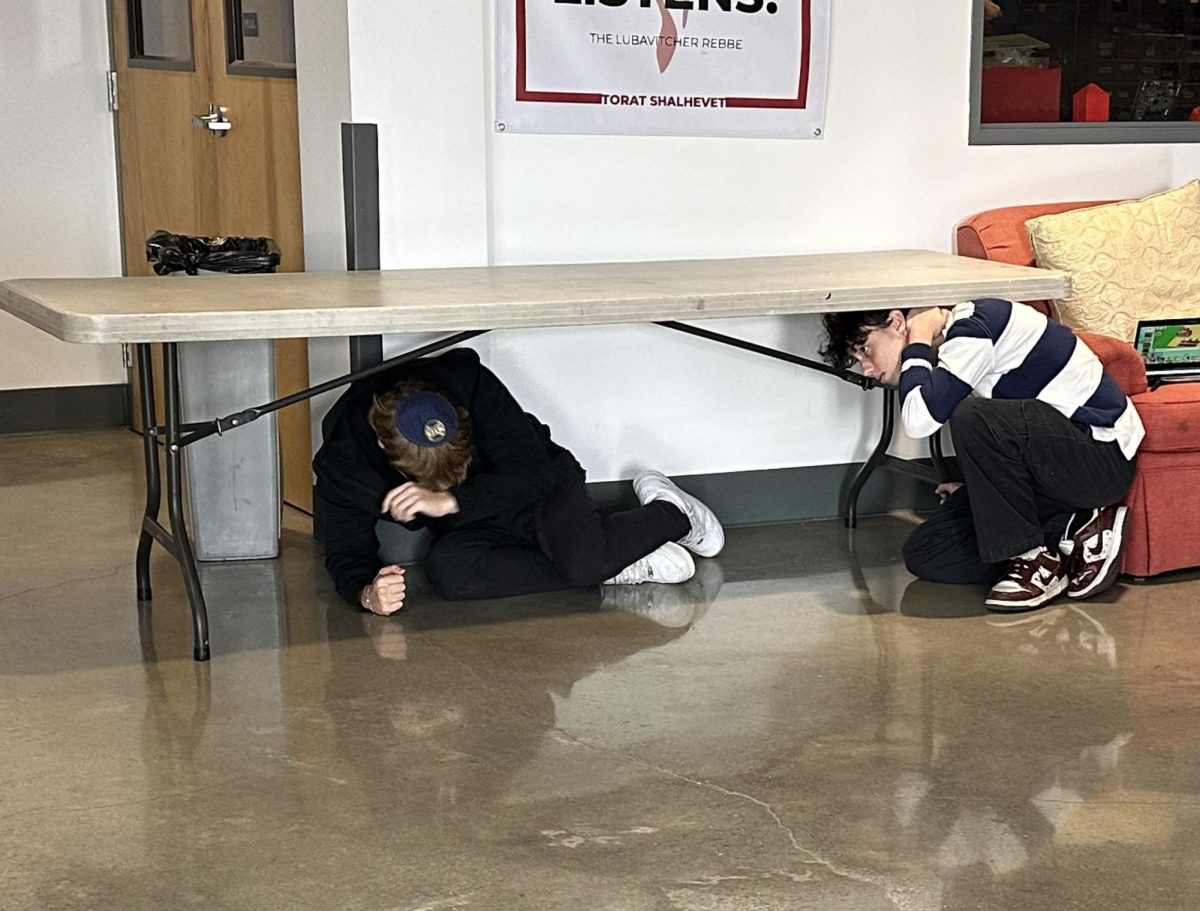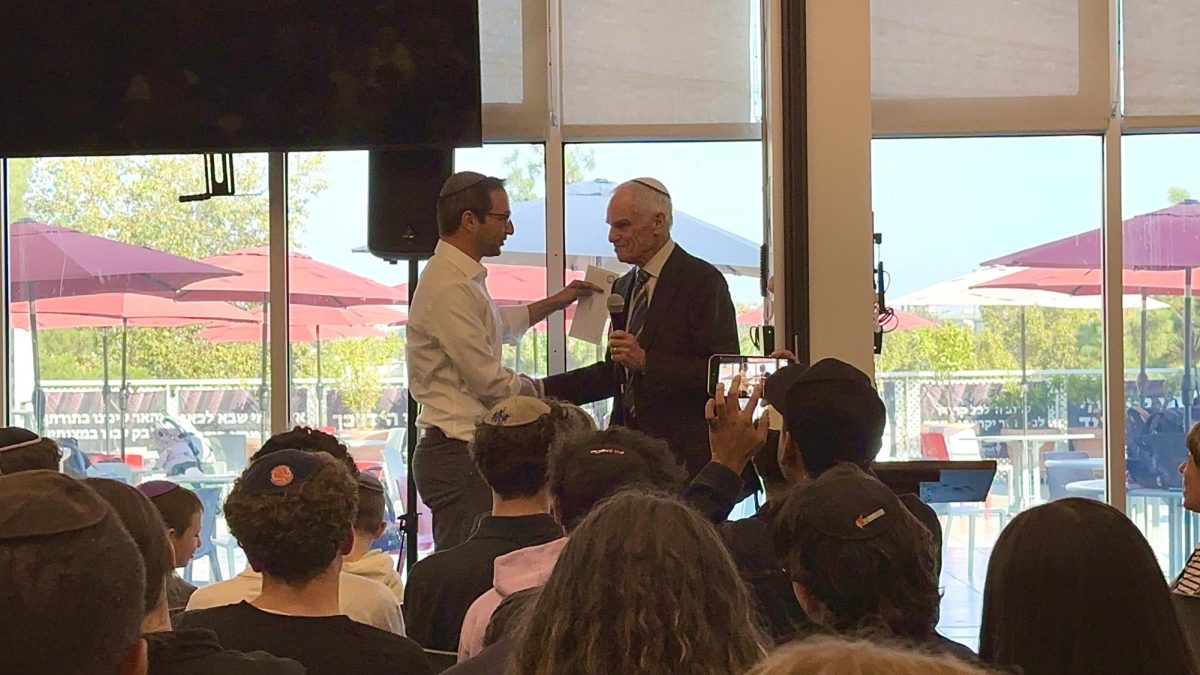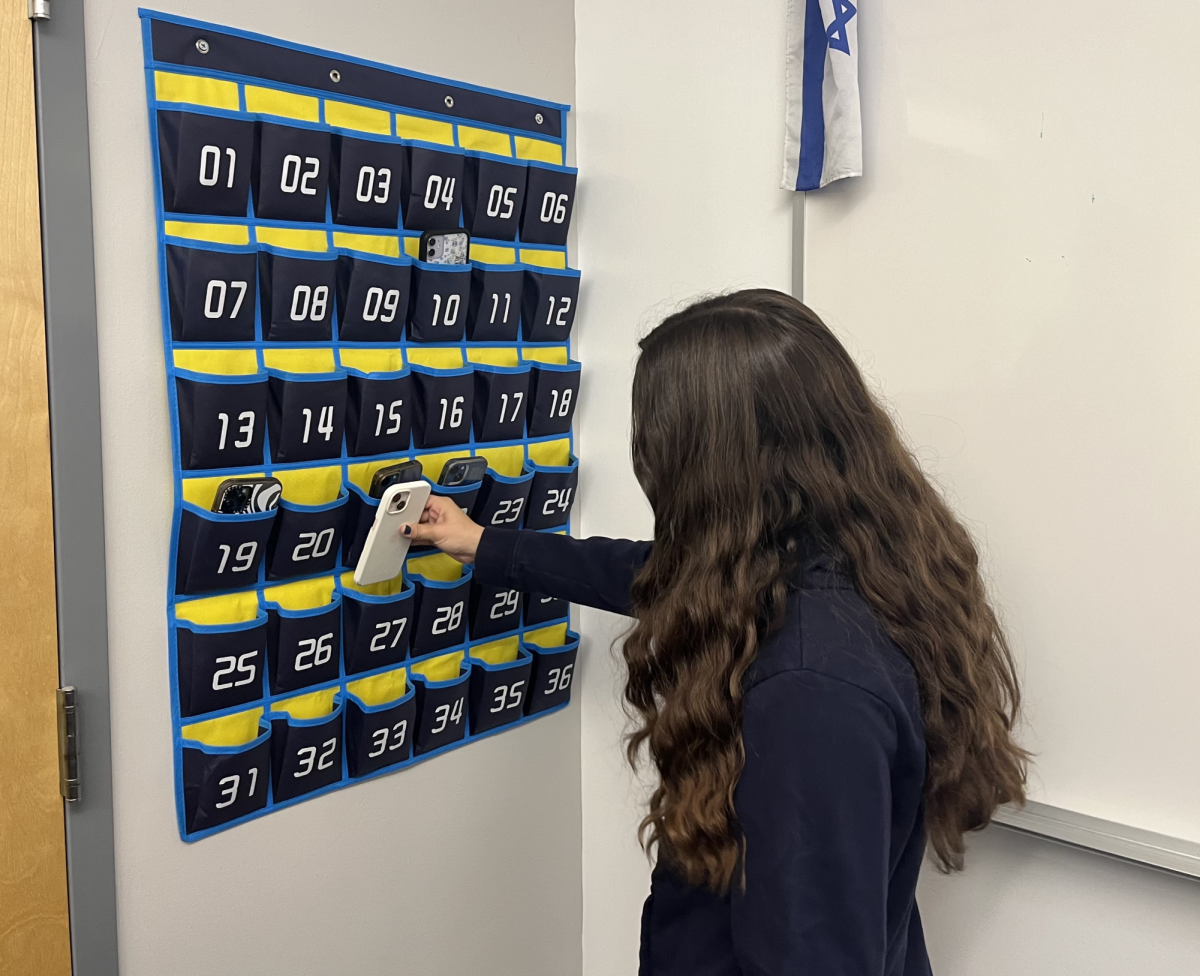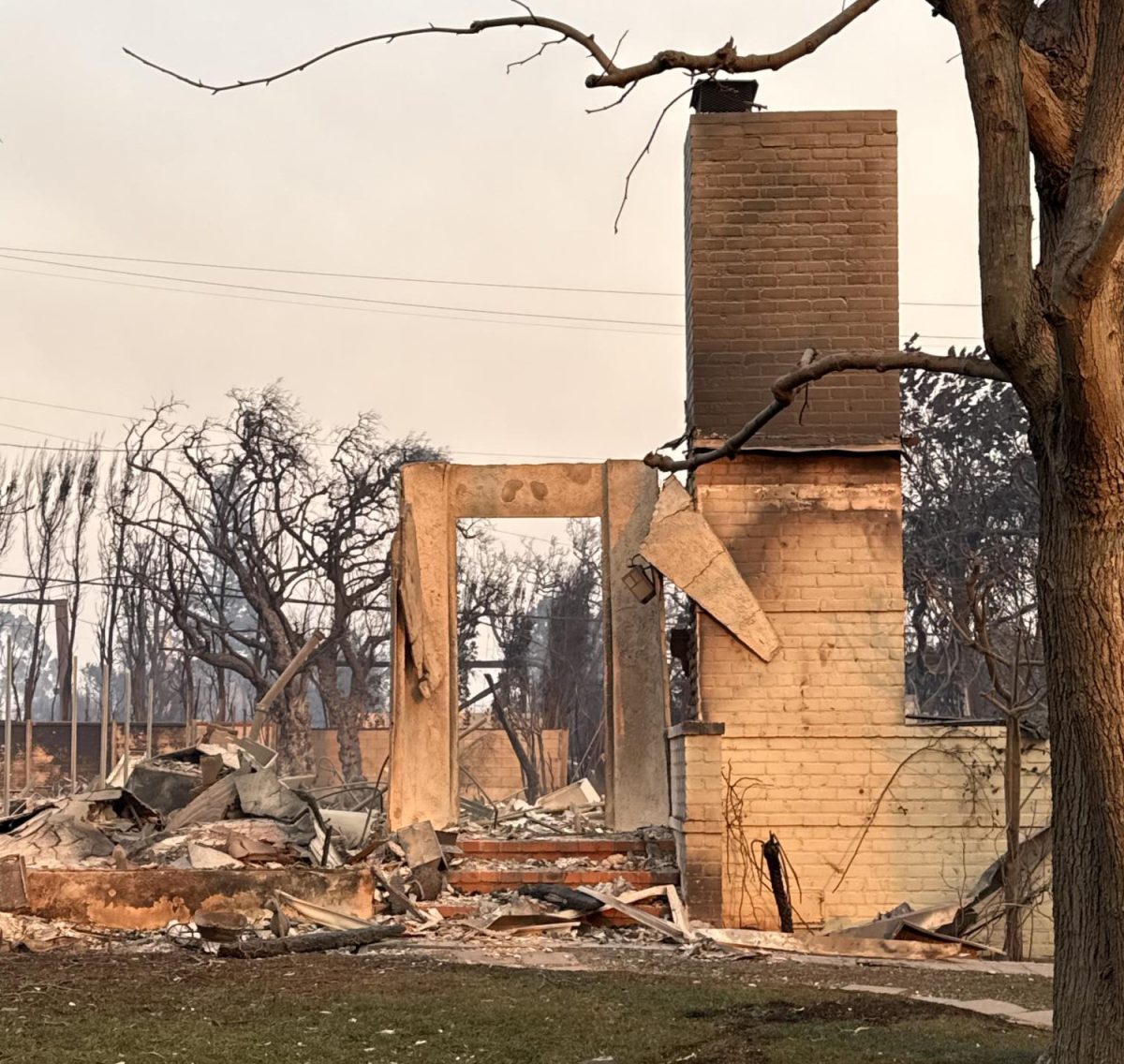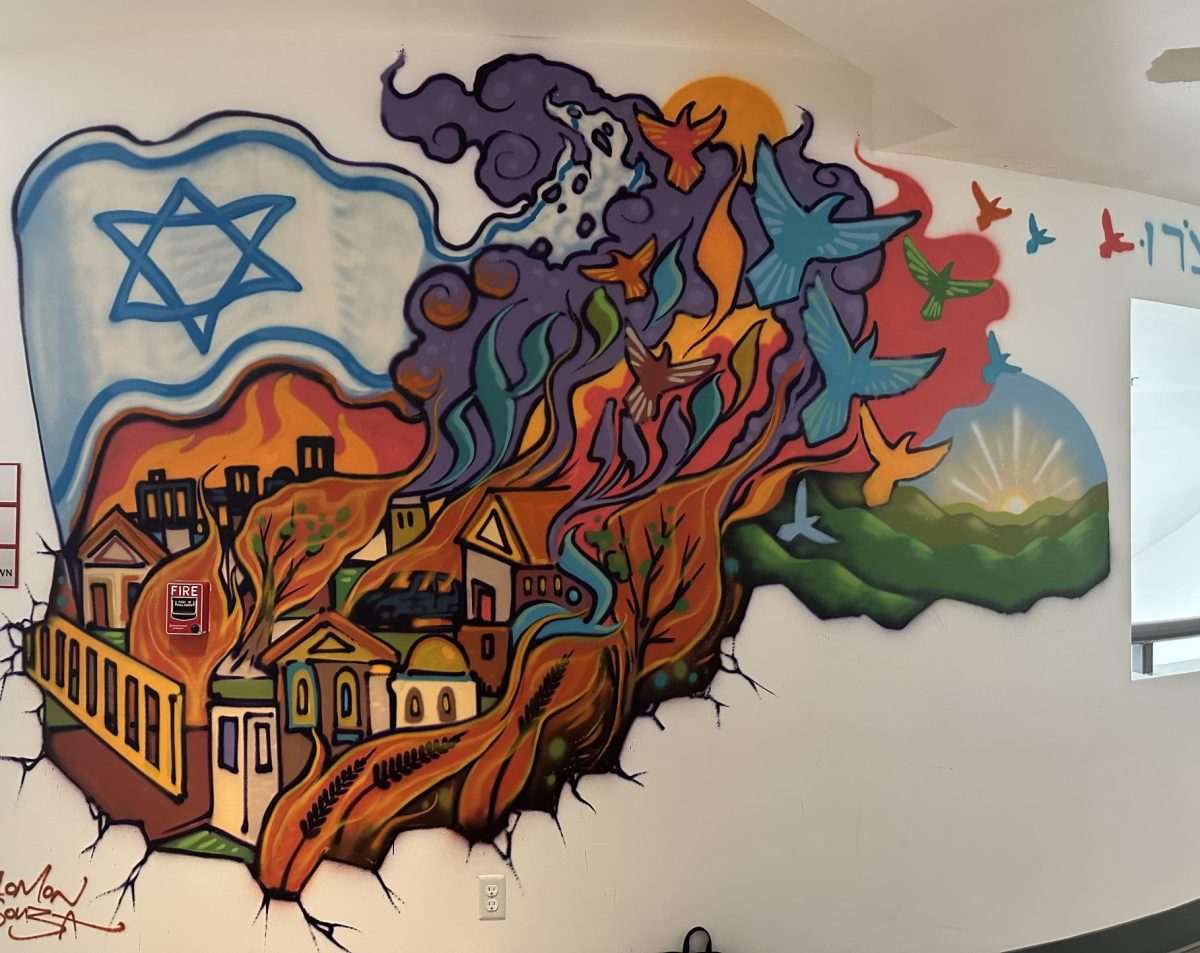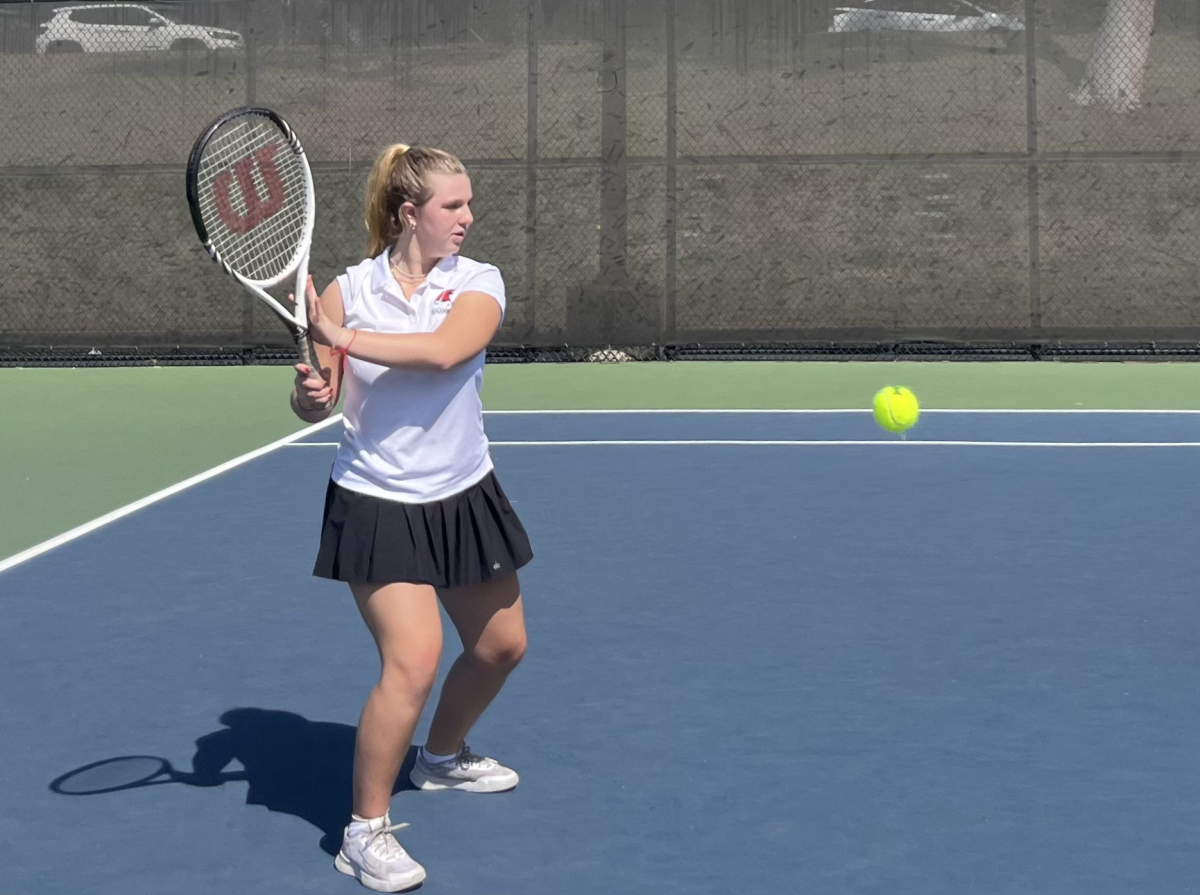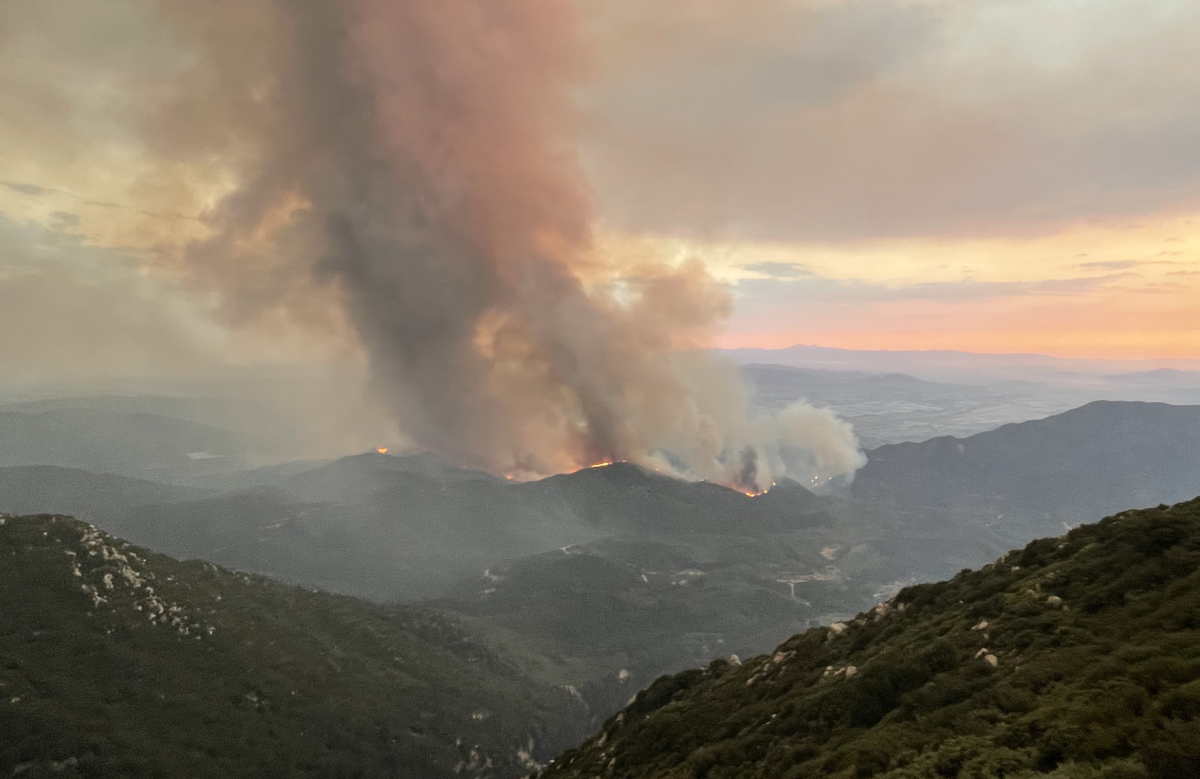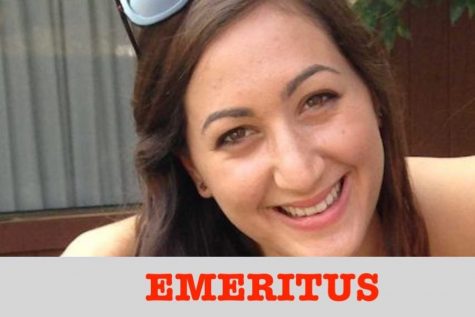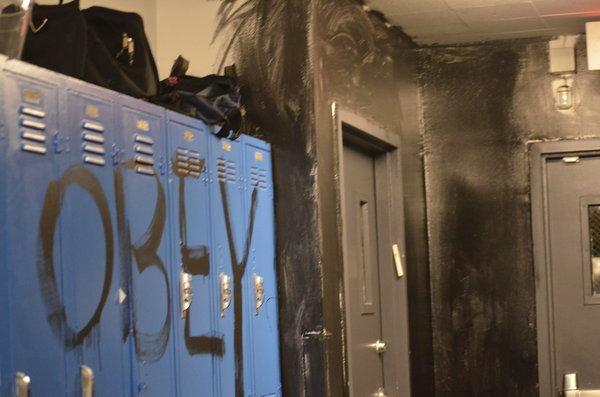
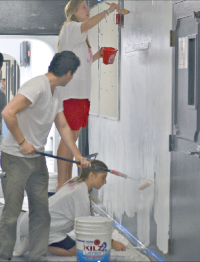
The class of 2013 stayed up all night May 20 transforming the school into what they called “death row” — a hodgepodge of horror themes involving classrooms and hallways. But while past senior pranks have been strictly temporary, this year’s attempted to leave a more permanent mark.
After an okay from the administration, seniors painted the walls of the school’s north hallway black, assuming it wouldn’t matter since that part of the school is to be demolished in July to make way for the new building.
But without realizing the difference, the seniors used oil-based paint instead of water-based, or latex. The next day, the walls had to be repainted because the oil-based paint was giving off fumes that caused nausea and headaches.
No one had told the seniors to buy latex-based paint — which does not give off these fumes and is much easier to clean up. It turned out that Judaic Studies director Reb Noam Weissman, who oversaw the prank, wasn’t aware of the difference himself.
“Unfortunately, and Raizie makes fun of me for this, I just don’t know that much about paint,” Reb Noam said. “I guess I need to start learning. Hashtag my bad.”
Cleaning up the oil-based paint required extra work from the school custodians, Mr. Jose Flores and Mr. Ruben Moreno. Mr. Moreno was on the floor in the foyer –scrubbing without results, it turned out — on Wednesday afternoon while most seniors were home sleeping after staying up all night to set up the prank.
Seniors who found out were contrite, and and some returned to school to help repaint.
“We apologize for what went on,” said Ariana Feder, one of the senior class presidents who helped plan the prank. “We’re sorry that it caused custodians extra work and extra trouble. We definitely did not mean for it to fall onto the custodians. We did not know that all this would happen, and we hope that kids can still have prank in the following years.”
Ariana and class co-president Natalie Kessler said the class planned to give gifts to the maintenance workers to make up for it.
But meanwhile, an outcry had ensued, and Town Hall May 22 was dedicated to the issue. Questions raised were whether future seniors should be allowed to have pranks, how far is too far, and whether there should be consequences for current seniors for leaving before properly cleaning up the prank.
Despite the class’s apologies, some felt that the prank was destructive.
“The only thing that bothered me about it was that it wasn’t really a prank,” math and science teacher Mr. Chris Buckley said in Town Hall. “I would like to see the junior class and future classes move away from the assumption that the senior prank has to be so damaging. We give unnecessary work to people, and it’s just not fair.”
Most speakers supported the tradition, but encouraged a more positive or cerebral approach. History chair Dr. Michael Yoss described a prank at his former school, when students climbed onto the roof and hung a huge banner saying “For Sale.”
Ms. Sunshine suggested something similar.
“What I like to see is a prank that shows knowledge and affection for the school,” said Ms. Sunshine, who cited previous pranks as examples of the cleverness she believes they should entail. “It usually results in something that is enjoyable for everybody.”
Another talking point was a potential consequence for this year’s seniors. School controller Errol Briggs suggested that they pay for the paint needed to cover up the black.
But Reb Noam said there should be no consequence, because the seniors were given permission to do what they did. He emphasized that once they saw the damage caused, seniors had the chance to make the “right” decision on how to respond–and he acknowledged those who did.
“It’s not that the seniors were punished or had to clean it up,” Reb Noam said in Town Hall. “But the question was at that point, what is the right thing to do? If the custodians are cleaning it up, are you going to say that because you got permission to do it, that it’s the custodian’s job to clean up? The right thing to do is take a paintbrush in your own hand, and help them out.”
Besides covering the walls, paint was splattered on the carpet and some of the lockers were branded with the senior class’s trademark “O13EY.” Because the paint was oil-based, removing it would have meant a long process involving turpentine and paint thinners, which would have continued making people ill and also would have removed the paint underneath.
According to Ariana, students were told not to paint the lockers and to be careful about keeping paint off the floor. They said they would have stopped it if they’d seen it.
Sports Editor Sigal Spitzer and Community Editor Sarah Soroudi contributed to this story.


